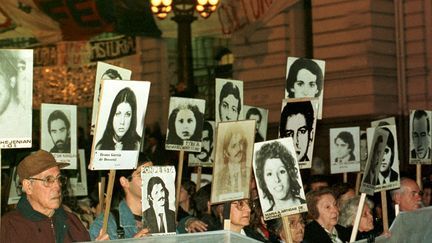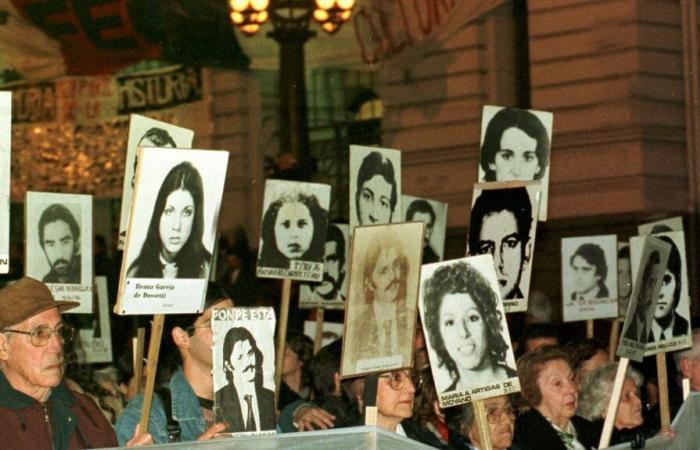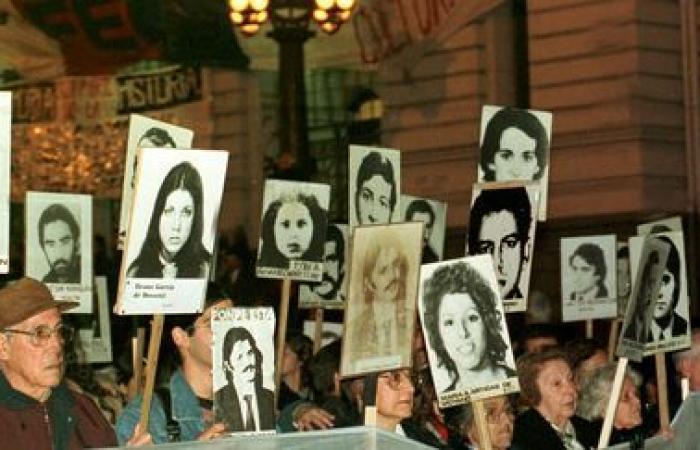The French president will pay tribute on Sunday in Buenos Aires to the 18 missing French people, victims of the dictatorship in the 1970s. A way of differentiating himself from the Argentine government, which openly defends the practices of the military regime.
Published on 17/11/2024 07:45
Updated on 17/11/2024 08:49
Reading time: 3min

During the presidential debate a year ago, Javier Milei already expressed his revisionist thoughts about the dictatorship in Argentina. “For us, in the 1970s, there was a war. And during this war, the state forces committed some excesses. Well, there were not 30 000 missing but 8 753″had downplayed the future Argentine president in October 2023. Emmanuel Macron, who arrived in Argentina on Saturday during a several-day tour of South America, will therefore go alone to a tribute to the French victims of the military dictatorship (between 1976 and 1983).
The president will lay a wreath in a church in Buenos Aires, where two French nuns were kidnapped in 1977 after the infiltration into the parish of the soldier Alfredo Astiz, today in prison for crimes against humanity. A way of differentiating itself from the Argentine government which openly defends the practices of the military regime.
The disappeared are people kidnapped by the military, tortured in clandestine centers and then killed. The figure of 30,000 is engraved in the memory of Argentines and in the marble of war memorials. But the Argentine far-right rejects this vision of the past. “The trials against the military are seen as a stigmatization or revenge against the army, the work of opening military archives is seen as revenge and an intromission”explains Marcela Perelman, research director at CELS, the center for legal and social studies.
“Human rights policies are seen as a fraud. Faced with this, the government has an attitude, which is also repeated with feminists for example, which is to attack the actors of these movements, in order to be able to then dismantle this sector and its public policies.”
Marcela Perelman, research director at CELSat franceinfo
The Macron couple will, however, be alone for the tribute to the 18 French victims. Neither the far-right president nor his representatives, some of whom show their support for the former torturers in prison, will be present.
The French president's gesture is, however, expected and appreciated by human rights activists. “Milei, and especially her vice-president Villaruel, clearly had a posture of support for the genocidaires, she visited them in prison and we had a resurgence of negationismdenounces Rosalia Argüelles Biscayart, whose three French brothers disappeared during the dictatorship. At the entrance to the French embassy, there is a portrait of the missing French people, including my brothers. But we need to move from the symbolic to something more tangible. So a gesture from Mr. Macron would be very welcome.”
A strong gesture, seen as an ideological demarcation in relation to Milei and above all as a message against the impunity of the military and negationism.








